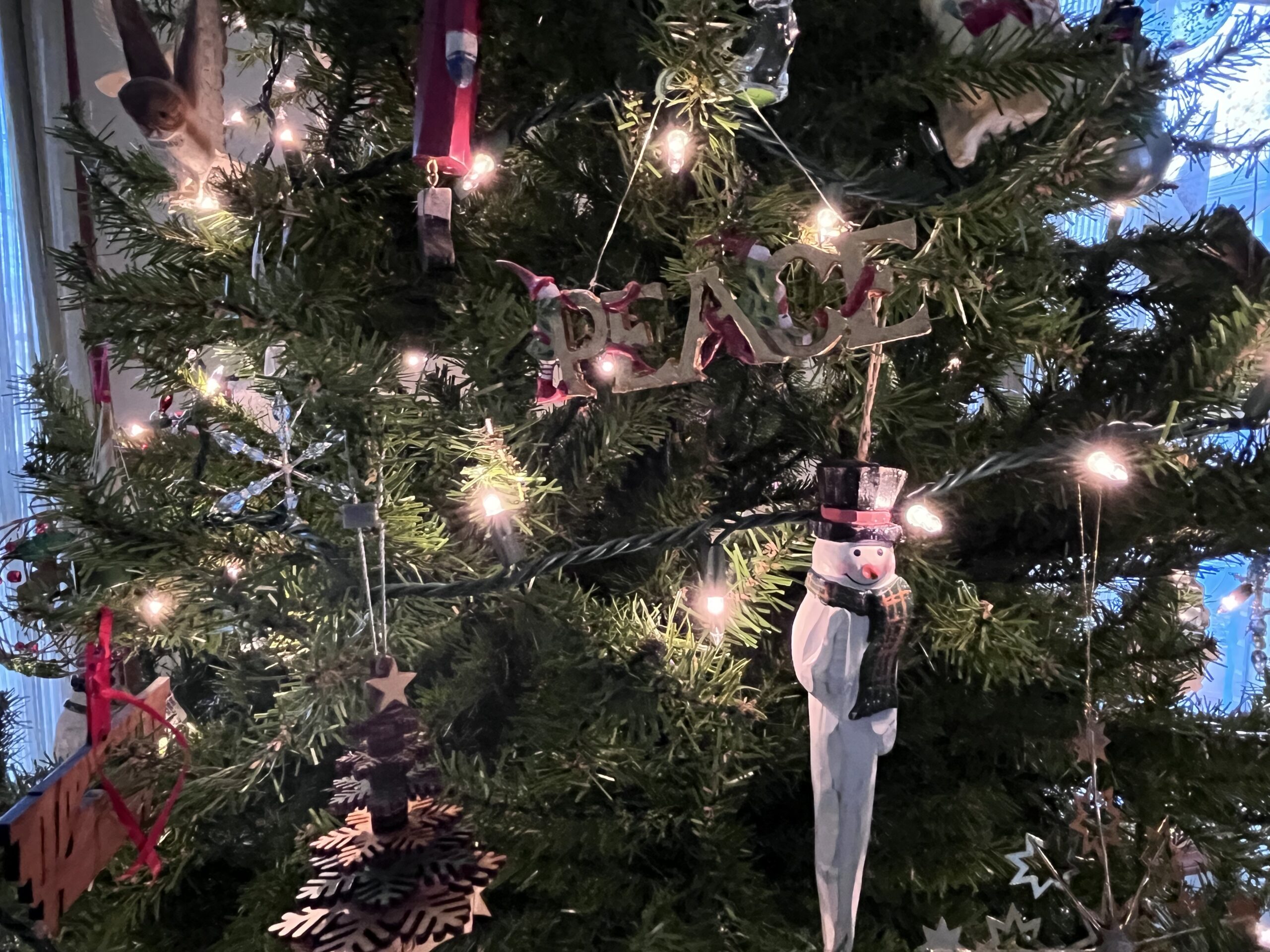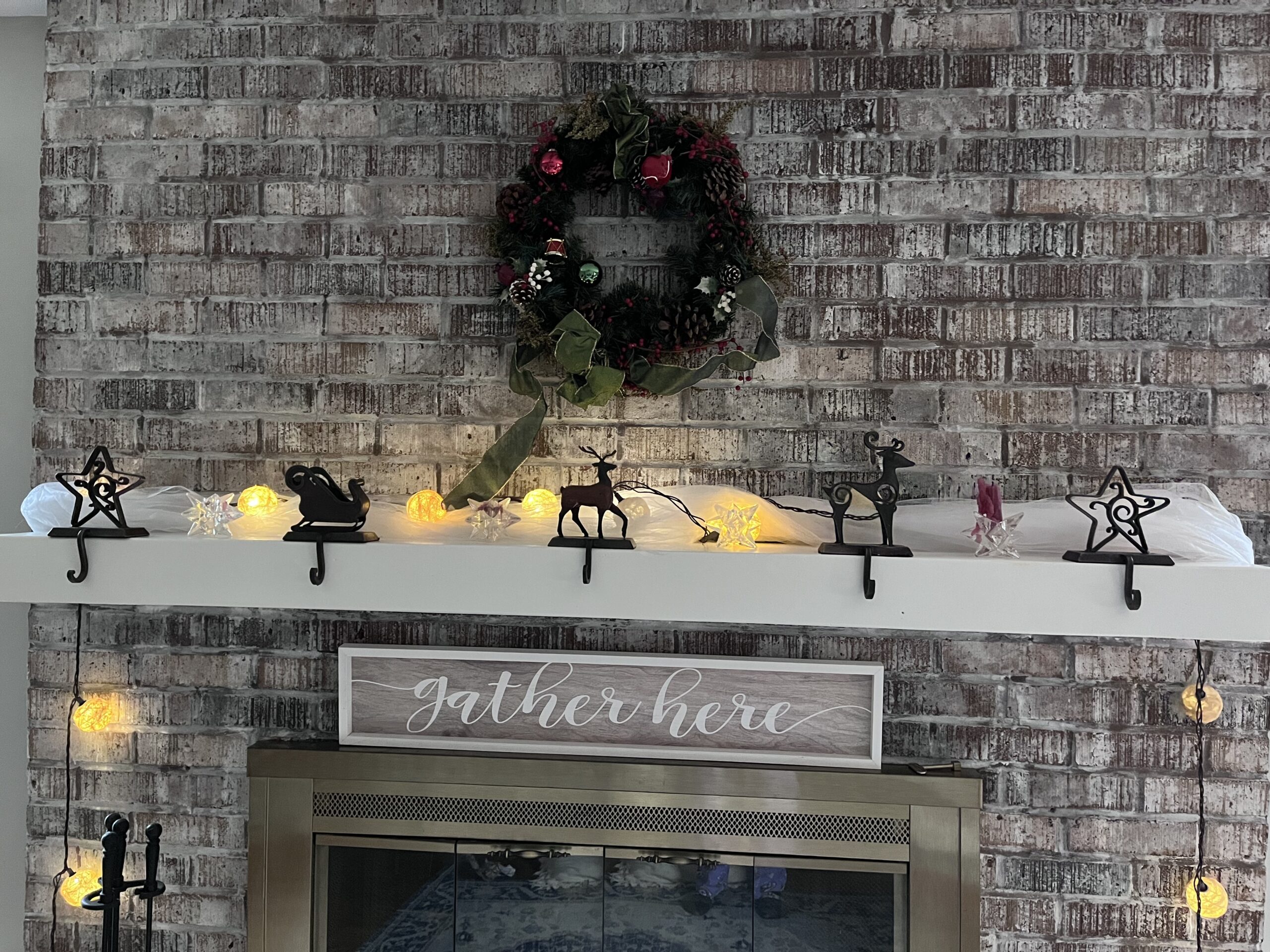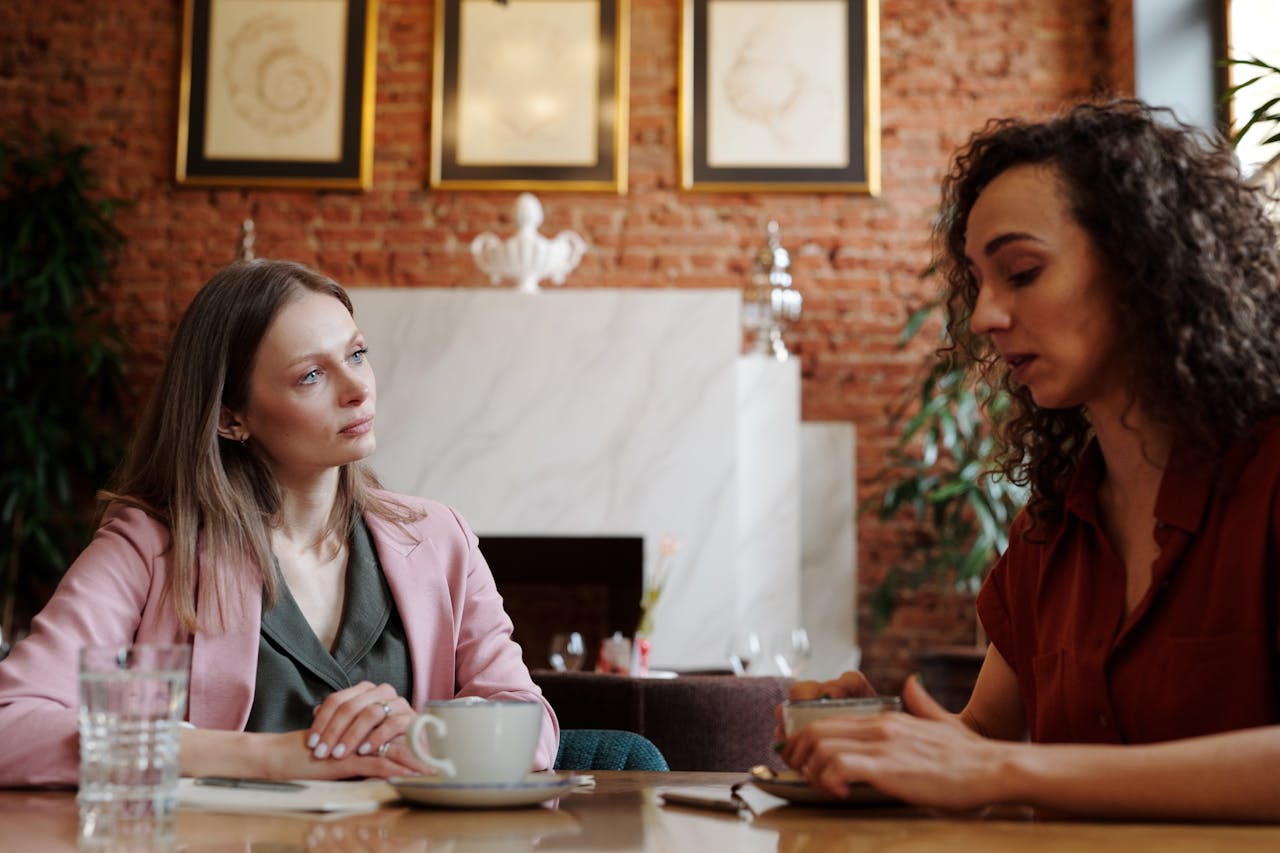The day after Thanksgiving, many people go shopping. I purposely fast from consumerism, needing to rest after two days of non-stop cooking and preparing (and eating) a large meal.
I do, however, drag out and assemble our steadfast 20-year-old artificial tree. I find a Christmas “coffeehouse” playlist on Spotify and pull plastic bins full of decorations out of the basement.


In this season of Advent, of waiting, I’m not even sure what I’m hoping for. But I’m still refusing to despair.
Advent means arrival. We are waiting for Jesus—the prince of peace. But peace feels elusive.
I had just a few family members around the table at Thanksgiving. I felt a little sad, remembering the years when we had to put two or three tables end to end in order to fit everyone.
Even as we shared too much starchy food and “what we’re thankful for,” I swallowed back nostalgia for the days when my house was more crowded on holidays.
But I comforted myself with the reminder that I am hosting a large gathering this Saturday for my running group. I love filling my house with people, feeding them and facilitating connection.

This group does more than run, though. We’re an eclectic group of athletes, most of us middle aged, all of us ardent supporters of one another and encouragers of any effort, great or small. My running buddies are in my life daily on a text chain, and three or four times a week in person to run together. We socialize a lot—in fact, the highlight of our Saturday run is the coffee hour (or two) that follows.
I know that if I pushed folks in this group to talk about their opinions on politics, or religion, or any other hot-button topic, I’d find a wide spectrum of views. Some I agree with, some I don’t. But I genuinely like these folks, and our differences are not important to me.
Here’s the thing: they are all welcome at my home. I believe loving my neighbor is not just an obligation, but a path to peace. A path to joy and hope. It is the best way to live.
I believe what unites us can be stronger than what divides us, if we are willing to love unconditionally. And the way we love is to welcome. Because what if hospitality can heal us?
I am sure there are people in your neighborhood, your church, your pickleball league or whatever that might see the world differently than you do. But they are human and created in the image of God. Yes, their opinions and their actions might feel like an affront, or betrayal, but beneath those things, they are humans.
I know some folks refused to sit down to Thanksgiving dinner this year with family members for a variety of reasons: their political views, their tendency to make shaming, inappropriate comments. I know a family where an adult child will not speak to her mom over political differences. I get it. Sometimes we need to set boundaries and choose our own health over keeping up appearances or tolerating bullying.
But what if we decide to build a few bridges this holiday season? What if we decide to welcome those who have become like strangers to us? Or, what if we provide hospitality, in small but significant moments, to total strangers?
What if we could welcome people, as best we can? That might mean inviting neighbors over for coffee and pie, or snacks and drinks. (If that feels like too much, maybe inviting a friend who’s hurting out for coffee, to just listen and give some space.)

It might mean just being very intentionally kind and patient with fellow shoppers, and especially with the frazzled shopworkers who have probably received very inhospitable behavior before they took a deep breath and said, “How may I help you?”
And do that—lock eyes with the checkout clerk, or the person waiting on you at a restaurant. Simply look them in the eyes and say “Hello.” When they serve you or simply ring up your purchases, say “Thank you.” Take a beat to simply acknowledge their humanity, and your own. You have this in common, if nothing else.
If we do this out of obligation or martyrdom, we’ll end up burned out and resentful. Instead, think about this: even in all your mess and uncertainty and mistakes, God welcomed you. God invited you to live in love, continually invites you to dwell in love. And when you do that, you can choose to turn and extend that love, that welcome, to others. We just might find the healing, hope, and joy that we’re longing for this Advent season.
P.S. Want to get more posts like this in your inbox? Subscribe for free to the Welcoming and Wandering newsletter here.

Leave A Comment